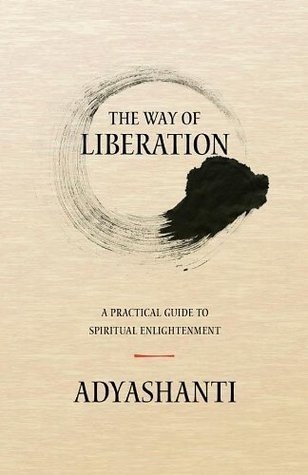The Way of Liberation - Adyashanti
I first discovered Adyashanti via a conversation with Sam Harris on the excellent 'Waking Up' app. He also had a meditative series in the practice section which I have now sat a couple of times. I was immediately struck by his calm assuredness, and how concise and on point he was, and ‘The way of liberation’ just confirms how good he is at teaching non-dual concepts and bringing you towards realisation.
Gurus and Cults
I don't subscribe to the idea of gurus, and have no intention of following anyone blindly. I was brought up in the catholic faith and have seen the damage that an unquestioning approach can bring.
Meditation teachers/practitioners either chime with me or they don't. For me, it depends where I am on the path - something that doesn't resonate now, might striek a chord later. So there are a lot of teachers and pracrtices that I move between. Ramana mahishi, Rupert Spira, Angelo DiLullo, Eckhart Tolle - those are some that spring to mind but I've left quite a few out. You have to seek out the ones that speak to you - if you have interest in the subject of meditation, you will come across the teachers you need.
Adyashanti was someone I connected with almost immediately, so I've kept returning to him. I already had 'The way of liberation' on my Kindle, but I received another copy when I registered for a course of the same name via the open gate sangha site. The course includes supplemntary materials such as recorded talks from Adyashanti, Q & A sessions and a workbook.
Five Foundations and Core Practices
The book itself is short, 53 pages in all, but as Adya says, he agonised over every word to ensure it is precise and deliberate - it took him two years to get it right. Depsite it's brevity, it covers a lot of ground - from the five foundations, through to core practices such as meditation, inquiry and contemplation. I found myself taking my time, and re-read the book three times over the space of a week.
One of the things I have realised from my years of reading meditation books is that understanding the concepts intellectually can only take you so far. You have to experience it, or rather, get out of the way so you can experience it. But when you are reading, the concepts have to be straight to the point to help you access deeper realisation.
Summary
And if you find the book a little confusing, perhaps you are reading it a little bit early on your journey. That's ok too - it'll still be there for you when you are ready, and you'll know yourself when that time comes - the profound insights contained in these 53 pages will resonate deeply with you. And sometimes I read a meditation book and know that I’m not ready for it - but something inside me recognises the truth in it, so I keep going. Sometimes you have to push yourself and reach beyond your current knowledge and experience.
The book is not so much an instructional manual, rather the teaching is meant to bring forth what is already inside of you - to help you awaken.
This book can be downloaded for free as a PDF from here.
If you’re like me and like have a shelf full of books on spirituality, you can get it via the Open Sangha site above or Amazon UK US Australia
And here’s a free month of Waking up on Me.


